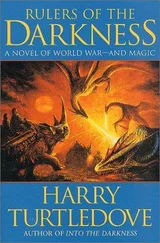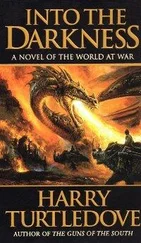Harry Turtledove - Over the Wine-Dark Sea
Здесь есть возможность читать онлайн «Harry Turtledove - Over the Wine-Dark Sea» весь текст электронной книги совершенно бесплатно (целиком полную версию без сокращений). В некоторых случаях можно слушать аудио, скачать через торрент в формате fb2 и присутствует краткое содержание. Жанр: Книги. Описание произведения, (предисловие) а так же отзывы посетителей доступны на портале библиотеки ЛибКат.
- Название:Over the Wine-Dark Sea
- Автор:
- Жанр:
- Год:неизвестен
- ISBN:нет данных
- Рейтинг книги:5 / 5. Голосов: 1
-
Избранное:Добавить в избранное
- Отзывы:
-
Ваша оценка:
- 100
- 1
- 2
- 3
- 4
- 5
Over the Wine-Dark Sea: краткое содержание, описание и аннотация
Предлагаем к чтению аннотацию, описание, краткое содержание или предисловие (зависит от того, что написал сам автор книги «Over the Wine-Dark Sea»). Если вы не нашли необходимую информацию о книге — напишите в комментариях, мы постараемся отыскать её.
Over the Wine-Dark Sea — читать онлайн бесплатно полную книгу (весь текст) целиком
Ниже представлен текст книги, разбитый по страницам. Система сохранения места последней прочитанной страницы, позволяет с удобством читать онлайн бесплатно книгу «Over the Wine-Dark Sea», без необходимости каждый раз заново искать на чём Вы остановились. Поставьте закладку, и сможете в любой момент перейти на страницу, на которой закончили чтение.
Интервал:
Закладка:
"No." Sostratos tossed his head again. "You almost wonder why anyone ever decided to build a polis here."
"You do. You really do," Menedemos agreed. "No proper bay to shelter a ship - just a long, straight stretch of coastline. The Hipponians haven't done anything to improve what they found here, either, have they? No mole to protect ships from waves and weather, hardly any quays. If Odysseus did sail up this way, he'd still feel right at home nowadays."
"If Odysseus did sail up this way, he did it in a pentekonter," Sostratos said. "Most of the Danaans who sailed to Troy went in pentekonters, if the Catalogue of Ships is right. To the Trojans, they were probably nothing but the biggest pirate fleet in the world."
Menedemos stared at his cousin. "Do you know something?" he said at last. "I care for Homer more than you do, I think."
"I'm sure you're right," Sostratos said. "He's a great poet, but he's not the man I turn to first."
"I know that," Menedemos said. "Still and all, though, you just made me look at the Iliad in a way I never did before. Who would have thought of trying to see things from the Trojans' point of view?"
He kept right on marveling as Diokles brought the Aphrodite to a stop not far offshore and the anchors at the bow splashed into the deep-blue water of the Tyrrhenian Sea. When Priamos and Hektor peered out from the windswept walls of Troy, how did they look at Agamemnon and Menelaos and Akhilleus and Odysseus? As a pack of gods-detested bandits who all deserved to be crucified? Menedemos wouldn't have been a bit surprised.
Sostratos might have been thinking along with him. He said, "I wonder how the Iliad would sound if Troy hadn't fallen."
"Different," Menedemos said, and they both laughed. Menedemos went on, "I'm sure it's better the way it really is." The effort holding that other perspective too quickly became too much for him. Sostratos didn't disagree. When morning comes, Menedemos thought as he stretched himself out on the poop deck, my mind will work the way a proper Hellene's ought to again.
When morning came, Sostratos' mind was still buzzing with the notion he and Menedemos had had the night before. "When Alexander invaded Persia," he said, "Dareios probably thought the Macedonians were a horde of barbarians, too. And from what I've seen of Macedonians since, he probably had a point."
To his disappointment, Menedemos didn't feel like exploring the idea any further. "The Persians had it coming to them," was all he said.
Sostratos dipped a barley roll into olive oil. "I suppose you'll say the Trojans had it coming to them, too," he said, and took a bite.
"Well, of course they did," Menedemos answered with his mouth full; his breakfast was the same as Sostratos'.
"Why is that, O best one?" Sostratos asked with honey-sweet venom. "Because Paris ran off with Menelaos' wife?"
"Why else?" Menedemos answered. Then he must have realized Sostratos hadn't been talking only about the Trojan War. Sostratos enjoyed the dirty look his cousin gave him. "Funny," Menedemos said. "Very funny. If I see Gylippos in a fast pentekonter, then I'll start to worry."
"When we're going back toward Rhodes, do you plan on putting in at Taras?" Sostratos asked.
Menedemos gave him another dirty look. Sostratos didn't enjoy this one nearly so much, because his cousin looked harried, too. "Don't ask me things like that right now," Menedemos said. "It depends on how much we've still got to get rid of by the time we're heading back from Neapolis. I suppose it also depends on just how angry with me Gylippos really is."
"How many toughs did he send after you?" Sostratos asked. "Nine?"
"Only seven," Menedemos told him.
"Excuse me," Sostratos said. "I do like to have the details straight. I would say that sending even seven toughs after you is a pretty good sign you won't be welcome in Taras again any time soon."
"I'd have to be careful in Taras, no doubt," Menedemos said . . . carefully. "No way to tell yet if things will be as bad there as they are in Halikarnassos. I hope they won't."
"They'd better not be," Sostratos said. "I'm not sure you could bring a ship into the harbor at Halikarnassos without getting it burned to the waterline - which is a shame, because the family's done a lot of business there over the years."
Menedemos walked over to the rail, hiked up his tunic, and pissed into the Tyrrhenian Sea. Looking back over his shoulder, he answered, "Believe me, I've had this conversation with my father a good many times."
Then why didn't you listen to him? Sostratos wondered. Why didn't you try to look at things from the point of view of the man whose wife you were enjoying? He knew the answer well enough. Because when your lance stood, that was all you cared about. Some men were naturally bestial, and needed no Kirke to turn them into swine. But Menedemos wasn't really like that. He could think, and think quite well. Sometimes, though, he didn't bother.
He did handle the Aphrodite with his usual competence, sending her north up the coast. "No good anchorage tonight," he told the crew. "No proper harbor, I mean. Plenty of beaches, but do you really want to risk putting her ashore?"
Almost as one man, the sailors tossed their heads. Italy was a populous land, swarming with Samnites and other barbarians. Nobody was eager to give robbers a chance to swoop down on the ship.
"Sensible fellows," Menedemos said. Sostratos wondered what he would have said had the sailors wanted to beach the Aphrodite. Something interesting and memorable: of that Sostratos had no doubt. As things were, his cousin continued, "Since we don't have to hurry to make a port tonight, we're going to spend some more time pretending we're a war galley."
That didn't produce unanimous agreement from the crew. Sostratos hadn't thought it would. Practicing naval maneuvers was hard work, much harder than just sailing the akatos north would have been. And, of course, there was no guarantee the sailors would need what they were practicing. If they didn't, they would have put in all that effort for nothing.
Of course, if they didn't practice and ended up needing to fight, that would carry its own penalty, too: a penalty worse than blistered hands and weary backs. Sostratos could see that as plainly as he could look down and see his feet on the deck. He wondered why it wasn't obvious to everyone.
But the grumbling wasn't too bad. Before long, the Aphrodite zigged first one way, then the other. She spun in her own length, moving much faster than she had when turning back toward Hipponion after the pentekonter sheered off. "Starboard oars - in!" Diokles shouted, and the rowers on that side of the ship pulled their oars inboard at the same time.
The oarmaster glanced at Menedemos, who grinned back at him. "I've seen triremes where they didn't do it so smoothly," Menedemos said. Sostratos dipped his head.
"Same here." Diokles turned back to the rowers. "Resume!" The starboard oars went back into the water in the same unison with which they'd left it. The keleustes let the men row for a few strokes, then shouted, "Portside oars - in!" This time, the maneuver proved less successful; a couple of oars came in slower than they might have.
"That's not so good." Sostratos and Menedemos spoke together.
"I know it isn't." The oarmaster sounded angry and chagrined. When he yelled, "Resume!" this time, he didn't try to hide that annoyance. He went right on at an irate bellow: "Now listen to me, you worthless lugs - if we ever need that command, we'll need it bad. If you're late, it's your arms that'll get wrenched out of their shoulder sockets. We're going to keep working on this till we get it right - right, do you hear me?"
All the portside rowers were, of course, looking straight back toward the keleustes on the poop deck. Like Epimetheus in the myth, rowers had a perfect view of where they'd been and none of where they were going. Sostratos eyed their sweaty faces more openly than he could have most of the time, because they were paying him no attention at all, but were listening to Diokles' tirade. Most of them, especially the ones who'd been slow, looked embarrassed and angry - not at the oarmaster, but at themselves for failing him.
Читать дальшеИнтервал:
Закладка:
Похожие книги на «Over the Wine-Dark Sea»
Представляем Вашему вниманию похожие книги на «Over the Wine-Dark Sea» списком для выбора. Мы отобрали схожую по названию и смыслу литературу в надежде предоставить читателям больше вариантов отыскать новые, интересные, ещё непрочитанные произведения.
Обсуждение, отзывы о книге «Over the Wine-Dark Sea» и просто собственные мнения читателей. Оставьте ваши комментарии, напишите, что Вы думаете о произведении, его смысле или главных героях. Укажите что конкретно понравилось, а что нет, и почему Вы так считаете.












